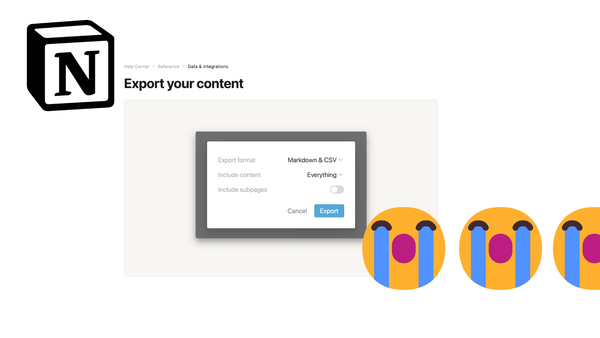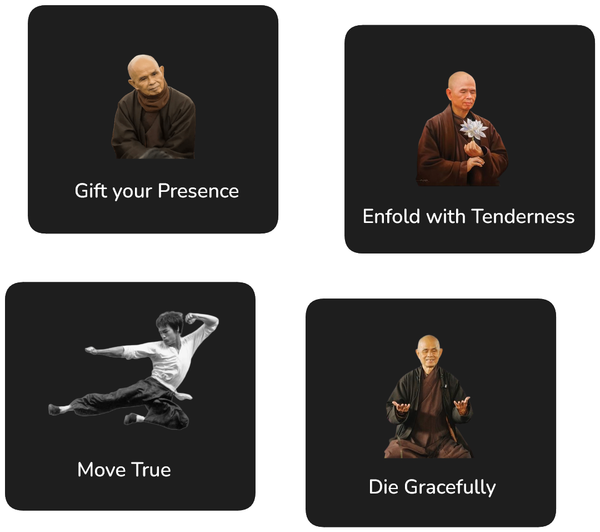Some Thoughts on Habits

I have long been interested in productivity and the old Benjamin Franklin quest of finding ways to better myself. One of the more recent themes in this field is habits, which I first came across in Duhigg's bookThe Power of Habit. The basic promise here is that if we get ourselves to do something regularly, it will eventually become part of our routine, and by doing something repeatedly, even if it is small, we can transform ourselves, achieve more and be healthier of body and mind.
When setting goals for myself in the past, I often placed an emphasis in weaving in these small activities in the hope that they would eventually form themselves into habits. Some of the goals I tried to accomplish in this way was learning to draw, exercising and stretching regularly, learning touch typing, as well as writing (e.g. see my post March Review). I pursued these as habits for many months, but must say, that I unfortunately failed in establishing these habits. Eventually something would happen in my life that would distract me from my newly formed 'habits', and after a few days it would be very easy for me not to follow them. Moreover, I would have to motivate myself with checklists and other gimmicks to stick to these habits. I would very rarely feel the natural urge to just do them for their own sake.
After having tried this more than once, I started to question if this approach to habit formation really works. I am thinking that we humans are maybe to complex to be easily 'tricked' to change our behaviour in this way; since this is ultimately a contrivance: we have an assumption about an element of human nature (that if we do something repeatedly, it will become a natural habit for us) and then we try to exploit this to help us achieve our goals.
Interestingly, some months ago, I did pick up a new habit, and it almost took me no effort to establish: tooth flossing. I just went to the dentist, and they explained to me that my gums were infected because I was not flossing, and doing so would fix this in a matter of days. They even gave me a sample of a very nice flossing string. And, lo and behold, after faithfully following the recommendation of the dentist, my gums were soon in perfect order. I have been diligently flossing ever since and didn't need any checklists, goals or other incentives to change my behaviour.
Key here for me was that I gained new knowledge, which motivated me to change my behaviour, and I also was provided with the means to do what I needed to do.
But I do not think it was only because of this that I was successful in changing my behaviour, but that the last key ingredient was me. This particular situation worked for me, but I do not think that everybody presented with the same circumstances would also be able to pick up this habit.
This all made me contemplate if maybe picking up habits is less about being more effective in establishing any habit, but more about finding the habits that work for you. So lets say out of 20 possible habits that you could adopt, 18 of these will be a real struggle, and you will in all likeliness fail at making those a part of your routine. But two of these may come to you naturally based on your unique history, interests and beliefs.
Thankfully there are many ways to become virtuous and improve ourselves. For instance, for someone joining a religious group will work very well and establish a habit of spiritual practice, whereas for someone else daily meditation practice would be a better option.
In consequence, we may be better advised to spend our time and energy in exploring different approaches rather than trying to force ourselves into behaviours that just do not come naturally to us at that particular point in time - since as The Ego Trick points out, what comes naturally to us in one circumstance or chapter of our lives may not do so anymore in another context and vice averse.
That notwithstanding, I think there is still something to be learned from all the available body of knowledge about habits. Chiefly I do think there is some utility in understanding cues and how they can be used to form our routines. The basic idea of cues is, that in order to establish a new habit, it makes sense to link it to something that we are already doing. For instance, think of brushing our teeth - generally we do so right after waking up and before going to sleep - this makes it easy for us to remember to do it. Conversely, I don't think there is too much merit in the idea of rewards; that is, that we can establish habits if we reward ourselves after performing the desired activity. That just doesn't work for me, since in the back of my mind, I always know that this is arbitrary, and I could just give myself the same reward without performing the activity. An exception to this are activities that have intrinsic rewards, for instance, it is possible to feel elated after doing exercise. I think this kind of reward should be embraced.
To put it all together, I have collected some ideas that maybe helpful in adopting behaviours you want to adopt:
Start with purpose
Ensure that you are clear about the motivation for the behaviour you want to adopt. Do you really believe in it?
Build knowledge
If you have a goal, such as loosing weight, try to find quality sources of information about how to achieve this goal. This will help you identify effective behaviours as well as aid you in building a strong sense of purpose.
Experiment
Don't get stuck on some particular behaviour that you want to force into your routine. Instead, try out different things and double down on what works for you.
Ensure opportunity
Make it easy for you to engage in the behaviour you seek. For instance, if you week is packed with activities and you are generally exhausted in the little free time you have, don't expect to be successful in engaging in a strenuous exercise programme. Instead, try to reduce your other commitments and create free spaces in your week; you are much more likely to exercise if you are bored. And, if your current circumstances do not allow you to create so much free space, you can at least know that you do not fail due to a lack of motivation or willpower but due to the circumstances you find yourself in.
Change your environment
One important way of ensuring opportunity is to adapt your life infrastructure. This may include to modify your schedule, living- or workspace to make it easy to engage in your desired behaviour. For instance, buying an exercise bike and putting it into your living room makes it easier for you to do some exercise here and there as well as puts a reminder of your intentions in you direct sight.
As I mentioned in the beginning of this article, I am on a decades-long quest to adopt healthier, more virtuous and wholesome behaviours, and I am very certain that my ideas presented above will not be the last word on my thinking towards approaching this challenge. I think in the Western world we have been obsessed with self improvement in not always healthy ways, particularly around weight management, happiness and exercise (see Exercised by Daniel Lieberman). So it is important to remember not to beat ourselves up about our failings. Our agency to form our habits is more limited than many of us would like to acknowledge, since most of our behaviour is likely predicated by our environment rather than by the strength of our willpower.





